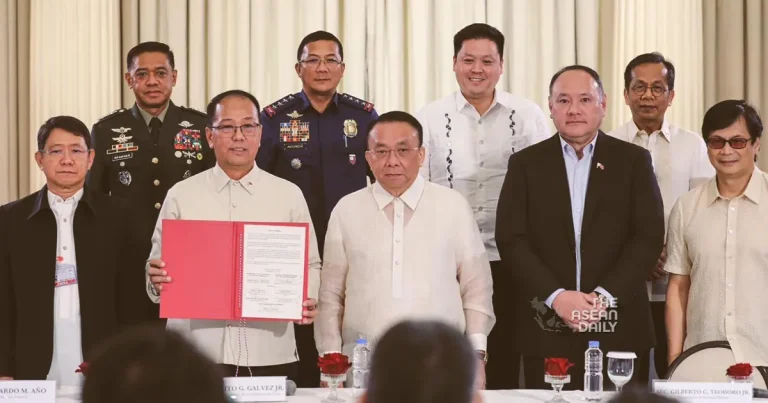28-11-2023 (MANILA) The Philippine government and the National Democratic Front of the Philippines (NDFP) have reached an agreement to resume peace negotiations, marking a significant development in the country’s efforts to address its long-standing insurgency issue. The decision to restart talks comes six years after former President Rodrigo Duterte called off peace negotiations with the NDFP, the group behind Asia’s longest-running insurgency.
In a joint statement signed in Oslo, Norway, on November 23, representatives from both parties expressed their recognition of the need to unite as a nation in the face of foreign security threats and serious socioeconomic and environmental challenges. The statement emphasized the parties’ commitment to a principled and peaceful resolution of the armed conflict.
Representing the Philippine government, Special Assistant to the President Antonio Ernesto Lagdameo Jr. signed the joint statement, while National Executive Council Member Luis Jalandoni signed on behalf of the NDFP. The NDFP serves as the diplomatic arm and umbrella group representing communist rebels in peace negotiations with the government.
The joint statement outlined the establishment of a framework that will set the priorities for the peace negotiations, with the goal of achieving relevant socioeconomic and political reforms towards a just and lasting peace. It also emphasized the importance of addressing the root causes of the armed conflict and putting an end to the armed struggle waged by the Communist Party of the Philippines (CPP) and its armed wing, the New People’s Army (NPA).
This development follows President Ferdinand Marcos Jr.’s recent grant of amnesty to former rebels and communist insurgents. The amnesty move was welcomed by state security and defense forces but received skepticism from lawmakers belonging to the Makabayan bloc. Members of the bloc, including Rep. France Castro (ACT Teachers), Arlene Brosas (Gabriela Women’s Party), and Rep. Raoul Manuel (Kabataan Partylist), challenged the president to resume peace negotiations while ensuring that the amnesty process is not exploited for corruption or falsely accusing civilians of rebellion.
The conflict between the government and the NPA has resulted in over 40,000 deaths, including civilians, over the span of more than five decades. During the Duterte administration, the practice of red-tagging, which involves labeling individuals or groups as communists or terrorists, intensified following the termination of peace negotiations in 2017. Human rights group Amnesty International has raised concerns about the government’s broad counter-insurgency strategy, which has led to the targeting and harassment of rights defenders, activists, unionists, lawyers, and other groups perceived as threats to the government’s interests.




